Based on 40 years of reform, it is necessary to have a more complete understanding of the core role of state-owned enterprises (SOEs) in the socialist-oriented market economy . Not only are SOEs a crucial material force ensuring macroeconomic stability, but they are also tools for regulating and guiding development, contributing to consolidating an independent and self-reliant economy, and maintaining the socialist orientation in the process of global integration.
An independent and self-reliant economy and the pivotal role of state-owned enterprises.
The current global and regional landscape is rapidly changing, complex, and difficult to predict. Strategic competition among major powers, economic and trade conflicts, digital and green transformations, along with non-traditional security issues, are profoundly altering the global economic landscape.
Within this context, Vietnam simultaneously faces two trends: integration and division, expanding cooperation while also confronting the risk of fragmentation and dependence.
Our Party has clearly defined the following: Maintaining independence and self-reliance in formulating development policies and strategies; developing strong Vietnamese enterprises to become the core of the economy; ensuring major balances and maintaining national economic security.
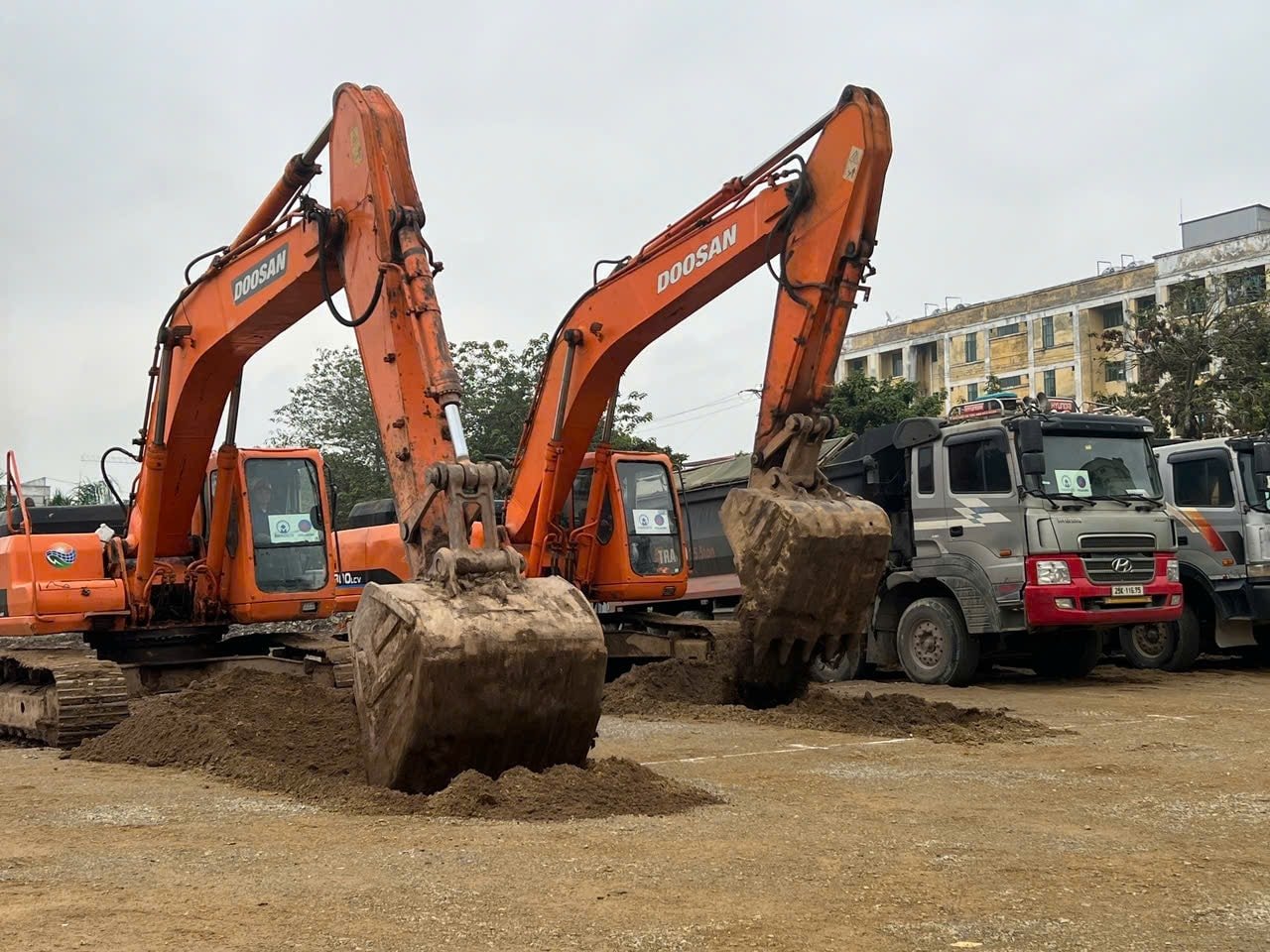
This is not only a theoretical requirement, but also a practical imperative in the context of deep integration and fierce competition today.
In the socialist-oriented market economy model, state-owned enterprises are an important material tool for the State to fulfill its role in regulating, stabilizing, and leading the market.
A self-regulating market economy is not the optimal model; proactive and effective intervention by the State is essential to overcome market imperfections and ensure sustainable development and social equity.
State-owned enterprises (SOEs), therefore, not only carry an economic mission but also have a special socio-political function. During crises such as the Covid-19 pandemic, the SOE sector has played a "buffer" role, sharing the burden on the budget, ensuring supply chains, stabilizing prices, maintaining essential production, and performing public service tasks that the private sector cannot or does not want to do. This affirms the position of SOEs as the most loyal and effective force in protecting macroeconomic stability and social welfare.
Building an independent and self-reliant economy does not mean isolation or self-sufficiency, but rather proactive integration and leveraging external resources to strengthen national capabilities.
An independent and self-reliant economy must be highly competitive and resilient to global fluctuations. State-owned enterprises (SOEs) are the "stabilizing pillars" of this structure, the pioneering force in building solid endogenous capacity for the Vietnamese economy.
In the process of restructuring the economy, state-owned enterprises (SOEs) need to be placed within the overall organic relationship between macroeconomic stability, economic restructuring, and sustainable development.
These three factors must operate in synergy, forming a "development triangle" that ensures the country maintains its economic independence and self-reliance while integrating deeply and effectively into the international community.
Restructuring state-owned enterprises - a strategic breakthrough for the new era.
Entering a new era of development, Vietnam aims to become a modern industrialized country with upper-middle income by 2030 and a developed country with high income by 2045.
To achieve that goal, the Draft Political Report of the 14th National Congress identifies the comprehensive and modern development of a socialist-oriented market economy as one of the three major pillars of the development model.
In this context, restructuring and developing state-owned enterprises (SOEs) is a key task, aimed at realizing the leading role of the state-owned economic sector.
Restructuring state-owned enterprises (SOEs) cannot be a "one-way street" simply leading to the State withdrawing or reducing the scale of investment. Instead, it requires flexibility and selectivity, depending on the requirements of each stage. When the market experiences significant fluctuations, the State can increase investment and hold controlling stakes in some key sectors to stabilize the economy; when conditions are favorable, it can divest to encourage competition and mobilize social resources.

International practice shows that many developed countries have flexibly applied this principle.
During the 2008 financial crisis, the United States temporarily nationalized some large businesses, then divested when the market stabilized, even making a profit.
This lesson affirms the proactive and timely role of the State as a decisive factor in managing a modern economy. In Vietnam, the process of equitization and divestment of state-owned enterprises has made a significant contribution to promoting governance reform and increasing transparency, but it has also revealed limitations: Many state-owned enterprises, after equitization, have experienced a decline in equity capital, lack investment motivation, and have not yet played a leading role in strategic sectors.
It's time to innovate the perception and management mechanisms of state capital, viewing it as a resource for development investment, rather than simply as an "asset to be preserved." The mindset of fearing mistakes and responsibility has led to the missed opportunities for effective investment.
At the same time, it is necessary to build a comprehensive institutional framework for a socialist-oriented market economy, in which the role of state-owned enterprises is clearly and transparently defined, avoiding overlap between state management functions and capital ownership functions. The representative body of the owner must be empowered with sufficient authority to make timely decisions, be accountable for the efficient use of capital, and ensure strict and transparent control of power.
Accepting the "birth and death" cycle for weak state-owned enterprises is an inevitable requirement of a market economy.
It is unsustainable to sustain loss-making businesses indefinitely, as this reduces investment efficiency and places a burden on the budget.
Conversely, resources should be focused on state-owned enterprises with potential, playing a leading role in key sectors such as energy, infrastructure, finance, foundational industries, innovation, and national economic security.
At the macro level, state-owned enterprises (SOEs) need to be repositioned as "the engine of technological innovation and digital transformation." In the context of the Fourth Industrial Revolution, this sector must take the lead in investing in digital infrastructure, renewable energy, high technology, logistics, and capital market development, creating a healthy competitive environment and supporting the private sector's development.
To enhance the pivotal role of state-owned enterprises (SOEs) in the new era, the focus should be on reforming institutions and operational mechanisms. First and foremost, it is necessary to continue improving the legal framework for state capital governance, ensuring a clear separation between the state's management functions and its role as an investor and owner of the enterprise, thereby increasing the autonomy, responsibility, and efficiency of each entity.
Simultaneously, the development of state-owned enterprises (SOEs) must be linked to a multi-ownership, multi-sector corporate model, capable of competing regionally and globally, and strong enough to handle key sectors, paving the way for the development of other economic sectors. The operational efficiency of this sector cannot be measured solely by short-term financial indicators, but needs to be comprehensively assessed through its substantial contribution to growth, macroeconomic stability, and social welfare.

In particular, in the context of the Fourth Industrial Revolution, innovation must become an endogenous driving force of state-owned enterprises. Investing in science and technology, human resources, and research and development is not only an economic task, but also a measure of national competitiveness, reflecting the strategic vision of a self-reliant and integrated economy.
Overall, restructuring state-owned enterprises is not simply about reorganizing production and business operations, but rather a strategic breakthrough in building an independent, self-reliant, modern, and deeply integrated economy, as affirmed in the spirit of the Draft Political Report of the 14th National Congress.
Developing strong state-owned enterprises is not about "clinging to the old model," but rather a step forward in national governance thinking in the new era – harmoniously combining market principles and socialist orientation, economic efficiency and political stability.
An independent and self-reliant economy can only be strong when state-owned enterprises are capable of leading, competing, and protecting national interests in the global market. This is also the consistent message, affirming the character and strategic vision of our Party as we enter a new era of development - an era of self-reliance, innovation, and sustainable prosperity.
Source: https://hanoimoi.vn/gop-y-vao-du-thao-van-kien-dai-hoi-xiv-cua-dang-doanh-nghiep-nha-nuoc-tru-cot-cua-nen-kinh-te-doc-lap-tu-chu-trong-thoi-ky-phat-trien-moi-720993.html







![[Photo] Prime Minister Pham Minh Chinh holds a phone call with the CEO of Russia's Rosatom Corporation.](/_next/image?url=https%3A%2F%2Fvphoto.vietnam.vn%2Fthumb%2F1200x675%2Fvietnam%2Fresource%2FIMAGE%2F2025%2F12%2F11%2F1765464552365_dsc-5295-jpg.webp&w=3840&q=75)
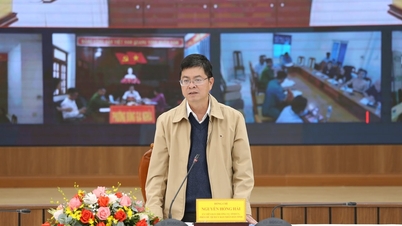

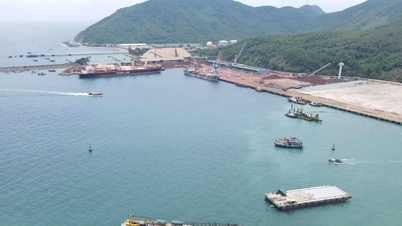





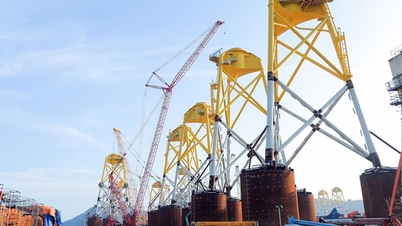

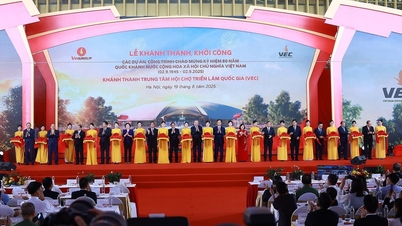
















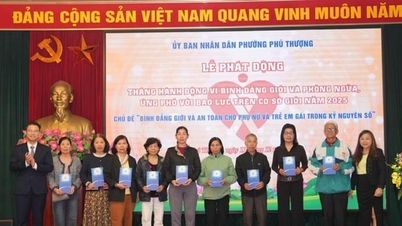
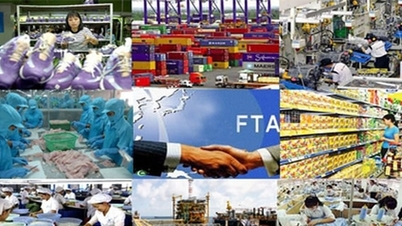








































































Comment (0)